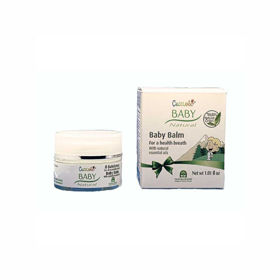Vprašanje stranke:
Kako dolgo traja bakterijska pljučnica? Vprašanje anonimne forum stranke
Odgovor farmacevta:
Trajanje bakterijske pljučnice je odvisno od več dejavnikov, vključno z resnostjo okužbe, vrsto bakterije, ki jo povzroča, starostjo obolele osebe, splošnim zdravstvenim stanjem ter ustreznostjo zdravljenja.
Običajno se z antibiotiki opazi izboljšanje v nekaj dneh po začetku zdravljenja, vendar pa se lahko celoten proces okrevanja raztegne na več tednov, še posebej pri ljudeh s kompromitiranim imunskim sistemom ali pri tistih z drugimi osnovnimi zdravstvenimi težavami. Pomembno je, da oseba upošteva zdravniška navodila, jemlje predpisane antibiotike v skladu z urnikom ter po potrebi upošteva druge ukrepe za izboljšanje zdravja, kot so počitek, hidracija in ustrezna prehrana.
Preverite še več o pljučnici.
Ali je bakterijska pljučnica lahko nevarna?
Da, bakterijska pljučnica lahko predstavlja resno zdravstveno tveganje, še posebej pri ranljivih skupinah, kot so starejši, dojenčki, ljudje s kompromitiranim imunskim sistemom in tisti z osnovnimi zdravstvenimi težavami.
Nezdravljena ali slabo obvladana pljučnica lahko povzroči resne zaplete, kot so:
- Sepsa: bakterije lahko vstopijo v krvni obtok in povzročijo sepso, ki je življenje ogrožajoče stanje.
- Empiem plevre: to je nabiranje gnoja v pljučnih votlinah, kar lahko zahteva drenažo.
- Pleuralni izliv: bakterije lahko povzročijo kopičenje tekočine med pljuči in prsnico.
- Akutni respiratorni distresni sindrom (ARDS): to je resno stanje, ki prizadene pljuča in lahko vodi v hudo dihalno odpoved.
- Endokarditis: bakterijska pljučnica lahko povzroči vnetje srčnih zaklopk.
Ali je bakterijska pljučnica nalezljiva?
Da, bakterijska pljučnica je nalezljiva. Večina primerov bakterijske pljučnice se prenaša s kapljicami, ki nastanejo med kašljanjem, kihanjem ali celo govorjenjem okužene osebe. Mikroorganizmi, kot so Streptococcus pneumoniae, se lahko prenašajo s stikom z respiratornimi izločki okužene osebe.
Poleg tega je pomembno vedeti, da je zdravljenje z antibiotiki ključno ne le za zdravljenje okužene osebe, ampak tudi za preprečevanje nadaljnjega širjenja bakterij na druge ljudi. Zato je priporočljivo, da se okužena oseba izolira in upošteva usactrezne higienske ukrepe, kot so pogosto umivanje rok, kašljanje v robček ali komolec ter izogibanje tesnim stikom z drugimi ljudmi, dokler ni zdravljenje zaključeno.
Zanimivo branje: Bakterijska pljučnica zdravljenje
Zanimivo branje: Pljučnica nalezljivost








 Facebook
Facebook
 Instagram
Instagram
 info@moja-lekarna.com
info@moja-lekarna.com

